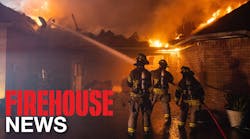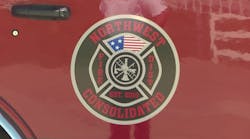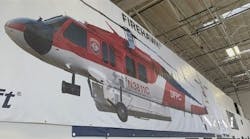Years bygone, you could join the ranks of the fire service as a young recruit and progress up the chain of command over a 20- to 30-year career simply by doing a good job and learning on the job. Fire service certifications were gained through training and experience, and played a major role in promotions.
Times Have Changed!
Why consider attending college? Today, a college degree is also a must if you are to maintain your skills and knowledge in a rapidly changing technological field.
The job of firefighter and emergency medical service technician has changed dramatically over the last several decades. Once, fire suppression was a major aspect of the job. You still must be ready and able to address a major fire, but in most localities building technology and fire prevention technology and education have reduced the incidence of fire quite a bit.
With today’s sophisticated techniques and equipment, the modern firefighter must be well-educated in responding to the demands of his or her job. The job has expanded. Today, the firefighter is called upon to perform medical first responder and emergency services extrications far more frequently than fighting involved fires. National threats of terrorism have caused new demands to be placed on the firefighter for knowledge and skills in disarming weapons of mass destruction, ensuring public health and safety, and performing mass-casualty mitigations and working as a public safety team member.
Today’s firefighter must have an in-depth understanding of the science of firefighting and the practices of fire prevention, as well as these new emergency medical services techniques. All of this requires post-high school education, as today’s firefighter will be a lifelong continuous learner in order to perform effectively.
How can you ensure that you will be able to stay up with the demands of a demanding job, and get ahead? Competition for jobs is keen! In many localities the ticket to getting on the job is to score high on an entrance exam. This requires the ability to do high school-level math, including algebra. Good reading and writing skills are also required on these exams. Some localities, such as larger cities, have many people turning out for these career positions, and as such one or two years of college are also required.
Additionally, it is clear that to succeed over a career lifetime there is a need for effective communications skills – including speaking, listening and reading skills. Likewise, an understanding of science and technology is essential – especially as you will be involved in suppression of fires involving dangerous materials. No longer is an understanding of the science of fire just enough. Now a solid understanding of the principles of chemistry, physics, electronics and even biology is important. Also, sound thinking, reasoning and decision-making skills, as well as the importance of continued lifelong learning are essential.
Taking Charge
Associates’ degree programs provide coursework in such areas as supervision and management, building construction and codes, materials, fire technology practices, and emergency management principles. Many programs also permit students to take course concentrations in other allied areas such as emergency medical services or construction design and management. Herein you can design your program to fit your interests and future career plans.
Whether as a firefighter, emergency medical services technician or potential officer, these skills are essential. Many departments require a minimum of an associate’s degree to be eligible to take promotional exams for “white shirt” jobs.
How should you prepare for a second career or an additional earnings power now? Be prepared for a second career upon reaching eligibility for retirement at an early age such as in your mid-40s.
It has become a must that every young person takes personal responsibility for planning out short- and long-term career goals and educational plans. This is called professional development planning. It permits you to take personal control of your life, rather than trusting it to divine providence and chance. Plan now to benefit later! Why? Let’s look at how a firefighter gets onto the job and what’s involved to climb the “career ladder.”
The College Degree
The associate’s degree is the first level of a college degree. It is a two-year degree based upon earning 60 to 65 college credits or units. It can be earned at a community college or four-year college and consists of courses in general education (sometimes called arts and sciences), courses in technology and management related to the fire technology field and courses in the fire technology discipline itself. The baccalaureate is the second level of degree. It is a four-year degree. Both programs are also adding courses in weapons of mass destruction (WMD), high-building rescue, etc., to their curriculum. This combination of studies provides you with a solid foundation to do well on departmental entrance exams, promotional exams and on the job itself.
Choosing a College
How do you choose a college and a degree program? What are some of your considerations? Let’s look at:
- Programs of study and location of the college
- Amount of time you have budgeted for study
- Cost of college
- Your best learning style
- Amount of life and job experience you bring
- Distance to the college
Shopping for a college education should be approached much like shopping for anything else – carefully! What field or fields are you most interested in? As a reader of Firehouse® Magazine and this article you are probably in the fire technology field; however, fire technology programs at colleges, especially community colleges, vary in focus and choices. And you might want to take a second major in another related area that will expand your career possibilities as time goes on.
My program at Norwalk Community College now has an emergency management option for those wanting to expand their job options as retirement approaches in a new and emerging field. Emergency management has become a very desirable field of study. Likewise, many of my students also take second concentrations in engineering or science so that they can pursue positions in fire protection engineering or safety careers. Think carefully about your long-term options and interests.
Personal time commitment availability, work experience and geographic location all play into your decision. Can you commit time to going to college, considering your family situation? Does your present job allow time for college? If you are on shifts, does your schedule allow for a commitment to a college calendar? Do you have time on the job that can be applied to college credits? More about this later.
Where are you living and working in relation to the college or colleges you are considering? Generally speaking, community colleges are closer to most residential areas and have off-campus locations to make it even more convenient to attend. Starting your course work at a community college will make the travel easier. Community colleges also have more support for the student returning to college after an extended period out of school. These colleges also have tutoring support, study groups, and other help readily available.
Your Time Commitment
Most colleges offer classes in fixed timeframes – i.e., 10- or 15-week semesters or terms. Within these time frames, classes are either scheduled days or evenings. Most fire technology degree programs do provide for evening classes, as students attending these classes are also working during the daytime hours. However, more and more college fire technology programs recognize the nature of fire department shifts and do plan courses to coincide with the shift scheduling patterns. Some colleges hire faculty who have the ability to rotate the course schedule in order to keep it in sync with the students’ work schedules. Alternatively, some colleges have adapted to Internet-based technology to let students participate in course work via distance learning, in whole or in part.
You may want to consider a college that offers the opportunity to take courses over the Internet or through home study. Web-based courses require that you have the mental discipline to get in front of your computer on a regular basis and do your study independently. For some, this is not easy or workable, as some students need other students and interaction in-person instructor to keep them on track. In distance learning there is an instructor assigned to you, but at a distance. You communicate via the computer and e-mail.
The National Fire Academy (usfa.fema.gov) has a Degrees at a Distance Program that coordinates college fire technology programs. You can see some of the participating colleges offering distance learning opportunities by going to their web-site. Colleges offering fire science and technology coursework at a distance include:
- Arizona State University
- Chattanooga State Technical & Community College
- Colorado Mountain College
- Delaware Technical and Community College
- Tulsa Community College
In some instances, it is possible to enroll in a distance learning course offered by another college and transfer it back to your local college. Ask you advisor about this possibility.
Your Best Learning Style
Do you like to learn by “doing”? By reading and discussing? Both? Most of us in the fire service like to learn by doing – this is called “action learning.” Consider your best learning style when selecting a college program. Interview faculty and students who are in the program. Ask questions about courses and facilities. Are internships or apprenticeship opportunities part of the program? Get a sense of what you will be experiencing.
For students who have been in the work place for 10 years or longer, “open learning – adult- oriented” colleges have evolved as alternatives to the traditional college model. Herein, a significant portion of the degree curriculum is built around recognition of life experience and work experience for college credit. Included as a possibility is apprenticeship, where your on-the-job experiences become part of the college program. Some California community colleges offer this approach. Some examples of these institutions include Thomas Edison State College in New Jersey, Empire State College in New York and Charter Oak State College in Connecticut. Each of these three has major concentrations in fire technology built around the experiential learning process.
Another consideration is that of applying some of your work experience and on-the-job learning to a college degree. This is called experiential learning. Many colleges have arrangements to evaluate work experience in order to apply that work experience to college credit. Ask the college admissions counselor at the college you are considering about this option.
Paying for College
Your choice of college will also depend on the tuition and fees charged for your courses. Community colleges, those two-year degree-granting colleges, are by far the best bet for low-cost education. State colleges are next in line. The most expensive of all are the private colleges and universities.
Many colleges have financial aid packages available. Financial aid includes the federal Pell monies made available for people in need of assistance (and that’s most of us) to attend college. You will need to submit a detailed application to qualify for Pell, but it’s worth it. Pell can also pay for books and supplies. Other financial aid packages are also available through the college financial aid office.
Private money is also out there. My college created a 911 scholarship fund to pay tuition for fire, police and EMS officers attending college. The National Fire Protection Association (NFPA) has scholarships available, as do other sponsoring organizations, including some unions. And certainly don’t overlook your employer’s ability to sponsor some of your higher education.
It is worth adding that you may be surprised to find that students attending college are no longer just the “kid” right out of high school. Today, the average age of community college students is about 29. More people are choosing to return to college after working for some years right after high school. Additionally, many students already holding college degrees return to college to upgrade skills, change careers or just keep learning to stay competitive.
This article has offered a number of alternative approaches to gaining a college education. The best match of college and program to your needs is best determined by you. Your local community college admissions counselor will be happy to sit down with you and discuss your needs and their programs. The next step is yours.
Jeffrey A. Cantor, Ph.D., is the dean of Extended Studies & Workforce Education for Norwalk Community College in Connecticut. He is also the program coordinator for the Fire Technology and Emergency Management Associates Degree Program at the college. Dr. Cantor oversees a Public Safety Academy at Norwalk Community College, preparing fire, police, emergency medical services and emergency management personnel for southwestern Connecticut. Dr. Cantor has been an adjunct instructor at the National Fire Academy since the mid-1980s and a curriculum developer for NFA, USFA and EMI. He is also an appointed commissioner of the State of Connecticut Commission on Fire Prevention and Control.





